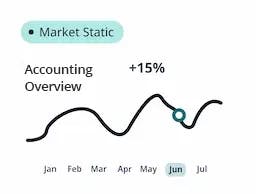
Admin
2024-01-16

In today&pos;s digital era, businesses are increasingly adopting cloud-based solutions to streamline their operations and drive growth. Cloud-based Enterprise Resource Planning (ERP) software has emerged as a popular choice for organizations seeking to enhance efficiency, scalability, and cost-effectiveness. In this blog post, we will explore the advantages of cloud-based ERP software, key considerations for adoption, and provide valuable tips for successful implementation.
Contact us?
Advantages of Cloud ERP
Scalability and Flexibility
Cloud-based ERP software offers scalability, allowing businesses to easily adjust their system resources as per their changing needs. Organizations can scale up or down their operations without the need for substantial infrastructure investments, enabling flexibility and agility in response to market demands.
Cost Savings
Cloud-based ERP eliminates the need for on-premises infrastructure, reducing upfront costs associated with hardware, maintenance, and IT personnel. With a subscription-based pricing model, businesses pay for what they use, avoiding large capital expenditures and optimizing their IT budgets. Additionally, automatic software updates and maintenance reduce ongoing operational costs.
Accessibility and Collaboration
Cloud-based ERP provides anytime, anywhere access to critical business data and applications. Users can securely access the system from various devices, facilitating remote work, collaboration, and real-time decision-making. This accessibility enhances productivity and empowers employees to work efficiently, irrespective of their physical location.
Data Security and Disaster Recovery
Cloud-based ERP solutions implement robust security measures, including data encryption, user access controls, and regular backups. Cloud service providers employ industry-leading security protocols and dedicated teams to ensure data confidentiality and protection. Additionally, cloud-based systems offer reliable disaster recovery capabilities, safeguarding business continuity in the event of unexpected disruptions.
Integration and Connectivity
Cloud-based ERP software seamlessly integrates with other cloud applications, enabling streamlined data exchange and synchronization. Integration with customer relationship management (CRM), e-commerce platforms, and other business systems enhances operational efficiency, data accuracy, and decision-making. Cloud-based ERP fosters connectivity across various business functions, eliminating data silos and promoting a holistic view of operations.
Considerations for Cloud-based ERP Adoption
Data Security and Compliance
Evaluate the cloud service provider's security protocols, data encryption practices, and compliance certifications to ensure they meet industry standards and regulatory requirements. Assess data residency and privacy regulations specific to your geographic location, ensuring compliance with local laws.
Performance and Reliability
Understand the cloud provider's service-level agreements (SLAs) for uptime, performance, and response times. Assess their track record, reputation, and customer reviews to ensure the chosen provider can deliver the required performance and reliability levels for your business operations.
Customization and Integration
Determine the level of customization and integration capabilities offered by the cloud-based ERP software. Assess whether it can adapt to your unique business processes and integrate seamlessly with your existing systems. Consider the availability of APIs and developer tools for future customizations or third-party integrations.
Data Migration and Transition
Plan for a smooth data migration from your existing systems to the cloud-based ERP solution. Ensure proper data cleansing, mapping, and validation processes are in place to minimize disruptions and data inconsistencies during the transition. Develop a robust change management strategy to facilitate user adoption and training.
Vendor Support and Expertise
Evaluate the cloud service provider's support offerings, including technical assistance, training resources, and documentation. Assess their experience and expertise in implementing and supporting cloud-based ERP solutions, as well as their track record in customer satisfaction.
Adoption Tips
Define Clear Objectives
Clearly outline your business objectives, key requirements, and expected outcomes from adopting cloud-based ERP software. Align these objectives with your overall business strategy and communicate them effectively to all stakeholders involved.
Conduct Thorough Research
Research and evaluate multiple cloud-based ERP vendors to identify the solution that best aligns with your business needs. Request demonstrations, customer references, and case studies to gain insights into their capabilities, industry expertise, and success stories.
Plan for Change Management
Prepare a comprehensive change management plan to ensure smooth adoption and user acceptance of the cloud-based ERP system. Involve key stakeholders from the early stages, provide training and support, and communicate the benefits of the new system to gain buy-in across the organization.
Start with a Pilot Project
Consider implementing a pilot project or phased approach to test the cloud-based ERP software on a smaller scale before full-scale deployment. This allows for identifying and addressing any potential challenges or customization requirements early on.
Monitor and Evaluate Performance
Regularly monitor the performance of the cloud-based ERP system, track key performance indicators (KPIs), and gather feedback from users. Continuously assess the system's effectiveness in meeting your business objectives and make necessary adjustments to optimize its usage.
Cloud-based ERP software offers significant advantages in terms of scalability, cost savings, accessibility, and data security. By considering important factors such as data security, customization, and integration, businesses can successfully adopt and leverage cloud-based ERP to enhance operational efficiency and drive growth. With careful planning, robust vendor selection, and effective change management, organizations in the UAE can embrace the transformative power of cloud-based ERP software for long-term success.
Latest News
From Our blog and Event fanpage




